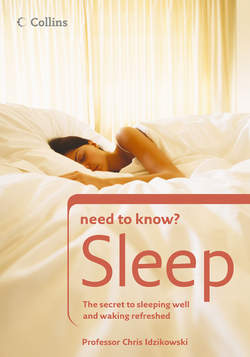Читать книгу Sleep: The secret to sleeping well and waking refreshed - Prof. Idzikowski Chris - Страница 53
Gender
ОглавлениеIt is a sad fact of life that you are more likely to have sleep problems if you are a woman. The reason for this is partly due to the female bodily cycles. Much of women’s lives is governed by the sex hormones oestrogen and progesterone, and hormonal fluctuations, as in the menstrual cycle, pregnancy and the menopause, can severely affect sleep either directly, or through their effects on anxiety and general mood. Pre-menstrual women commonly report sleeping difficulties in the week before their period starts, but even women who don’t suffer from pre-menstrual symptoms can still take longer to fall asleep, wake more often and feel less refreshed after sleep during the second phase of their cycles. Sleep disturbances also become more common during the menopause, when women report waking up more often at night and feeling more tired during the day.
Studies on the effects on sleep of Hormone Replacement Therapy (HRT) and oral contraceptives have shown that these hormones have direct effects on the brain. Oestrogen has widespread effects on mental performance, mood, movement coordination and pain. However, the monthly fluctuation of oestrogen and progesterone impacts on cognitive function, mood, appetite and temperature, as well as the sexual organs and breasts, making it more difficult to work out how they affect sleep directly.
There is evidence to suggest that women’s role in society may affect their sleep even more than hormonal changes. The added pressures many women face of juggling stressful jobs with their roles as mothers and wives can often pose an intolerable burden, exacerbated by the fact that many women ignore their fatigue.
